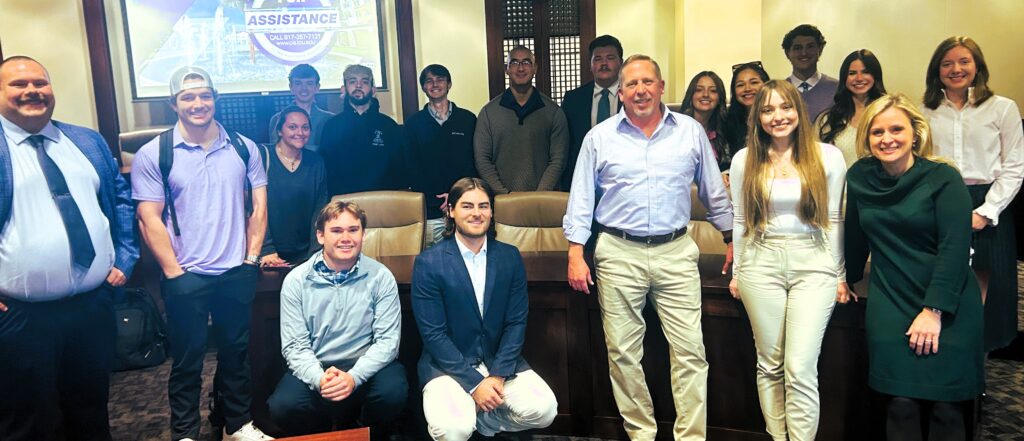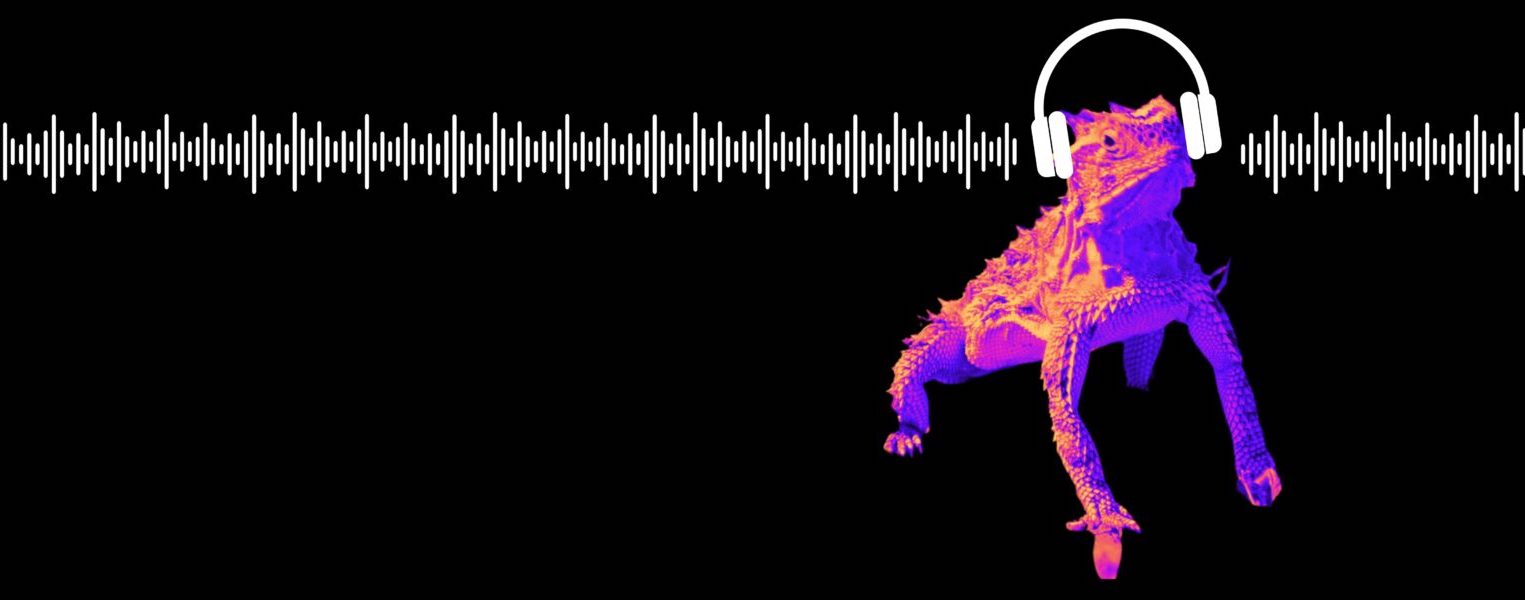History professor Kara Dixon Vuic, Ph.D., likes to challenge her students in unique ways. For a class that explored the TCU experience during World War I, World War II and the Vietnam War, for example, students created a website on the topic “Horned Frogs at War.”
Vuic’s most recent class, “The United States from 1941 to 1975,” examined the period in American history between the Japanese attack on Pearl Harbor, which plunged the nation into World War II, and the defeat of United States-backed South Vietnam by North Vietnamese forces.
“For this class, I wanted to do something a little different and thought, let’s make podcasts,” said Vuic, the LCpl. Benjamin W. Schmidt Professor of War, Conflict, and Society in Twentieth Century America. “I like having students do projects that are public-facing and not just write a paper that’s read only by me. I want them doing things that connect their local history — in this case TCU — to the national story. I think students enjoy learning about their own institution and the students who came before them. It helps give history a more personal connection and makes it more relatable.”
The result is “History Frogcast,” a nine-part series that explores the lives and impact of Horned Frogs during periods of conflict in American history.
TCU at the Center
Vuic decided that each podcast episode would start and end at TCU and use an individual or event as a springboard to explore a larger question. “The TCU connection is really a way to get students started,” she observed.
“I thought a podcast would be a good way to get them consider how to tell this story to the public. How do you make it interesting? That was the rationale for bringing a historian or expert into the conversation and for including audio from that particular time period, like popular songs or newsreels. I wanted students to think about how you tell a story to someone who is not necessarily a history buff or into World War II. I also thought creating a podcast would be a good way to develop skills that they can use outside the classroom later in their life and in their jobs.”
Vuic has appeared as a guest on but had never created one herself. She reached out to who cohosts a history podcast and he took her through the basics, including audio editing software. “Some of the students knew editing software really well, while others had no knowledge at all,” Vuic said. “So, we learned together.”
Senior history major Brian Kim, like many of his classmates, was surprised to learn that a podcast was required as part of “The United States from 1941 to 1975.” “This was my first time recording a podcast,” he said. “I had almost no experience with digital humanities, especially applying it in an academic format, but I really enjoyed the challenge.”
Topics that Challenge
Vuic developed a set of topics from which students could choose for their podcasts, as well as potential sources for interviews with historian and subject matter experts. Most students worked in pairs to produce their podcasts.
Kim, who served six years in the Army as a combat medic, chose to spotlight TCU alumnus Harrison Miller Mosley’s involvement in the Manhattan Project, the top-secret government program to create the first atomic bomb. “My partner, Walter Flanagan, and I chose to focus more on the Manhattan Project and its moral implications and use Mosley as a vehicle for the TCU connection,” Kim reported.
Senior Sam Taylor came to the project with podcast experience, having produced a podcast in another history course on race and American law. “For this project, my partner, Anna Claire Taylor, and I researched the roles of chaplains during the Second World War and how their service helped the Allies win,” Taylor said. “We also analyzed how TCU was impacted by the war. I’m a Christian, and Anna Claire is strong in her faith, so we figured it would be a very significant facet of WWII to explore.”
History major Teresa Fuentes, who graduated in Fall ’23, and her class partner, Marilyn Weiner ’24, chose to explore the fallout shelters established at TCU during the Cold War. “Neither of us knew that those were on campus,” Fuentes noted. “I’ve taken a lot of classes in the basements of certain buildings and it turns out those were resourced as bunkers. It was fascinating to realize how those remnants of history, especially during such a significant time in world history, are still present on campus.”
A Unique Perspective
In addition to the resources they uncovered at TCU, Fuentes and Weiner conducted a Zoom interview with historian Laura McEnaney, vice president for research and academic programs at the Newberry Library in Chicago, and author of “Civil Defense Begins at Home” (Princeton University Press). “Dr. McEnaney was a really big help,” Fuentes said. “Among other things, she discussed the government’s relationship with war and how that translated into society.”
Vuic’s goal is that the podcasts will help students better understand our nation’s history during the period between World War II and the Vietnam War. “I hope that it gives them a more personal face of American history and a more intimate look at the day-to-day experience of the early Cold War period, for example, or the Vietnam war,” she explained. “One of the episodes is about a TCU professor whose father was a South Vietnamese soldier. When Saigon fell in 1975, he had to get his family out because he had a target on his back. The professor was one year old when he came to the United States, and I think hearing his personal story was eye-opening and humbling for the students.”
Other episodes examine the invasion of Normandy, where two TCU alumni were killed; women’s struggle for equality in the Army during and after WWII; the GI Bill’s effects at TCU and across the nation; racial integration of colleges; the 1969 draft lottery that resulted in two students drawing number 1; and refugees of the Vietnam War.
The first of nine podcasts created by Vuic's students dropped January 17, and new episodes will drop each week on most podcast hosting platforms.
Listen to the History Frogcast

